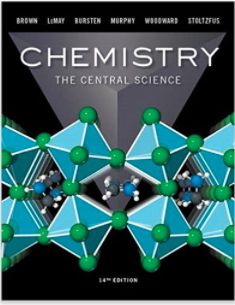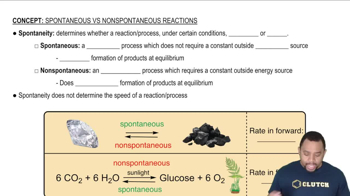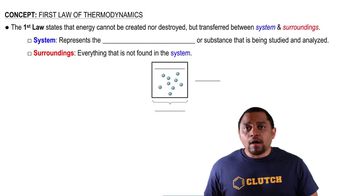Textbook Question
(a) What sign for ΔS do you expect when the pressure on 0.600 mol of an ideal gas at 350 K is increased isothermally from an initial pressure of 0.750 atm? (b) If the final pressure on the gas is 1.20 atm, calculate the entropy change for the process. (c) Do you need to specify the temperature to calculate the entropy change?




